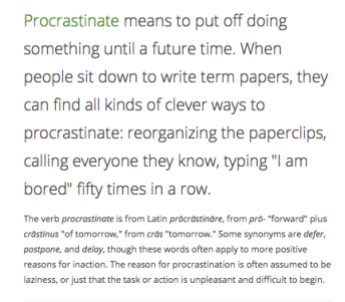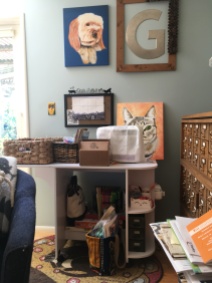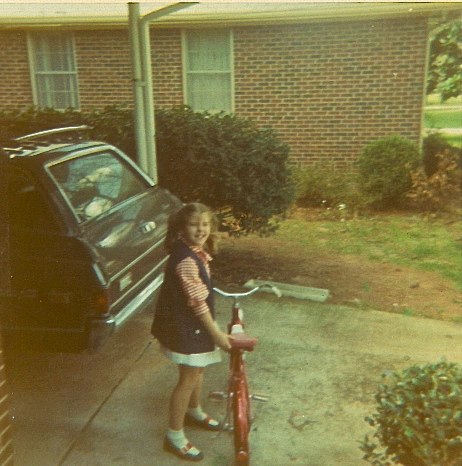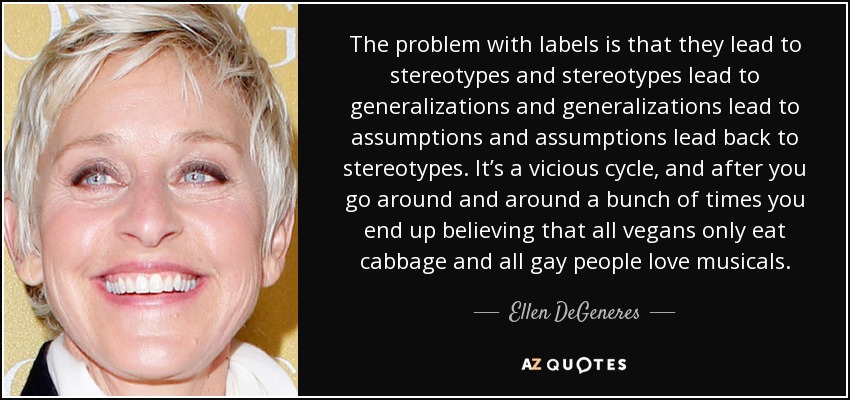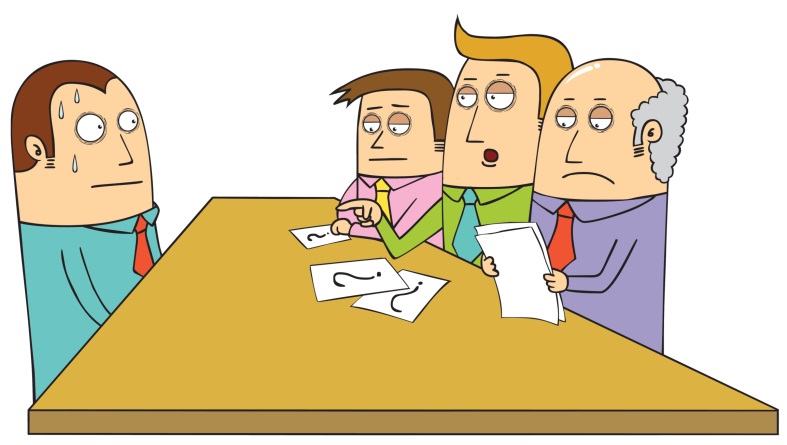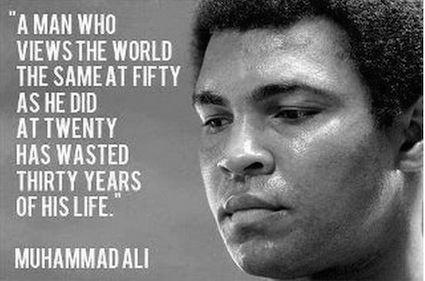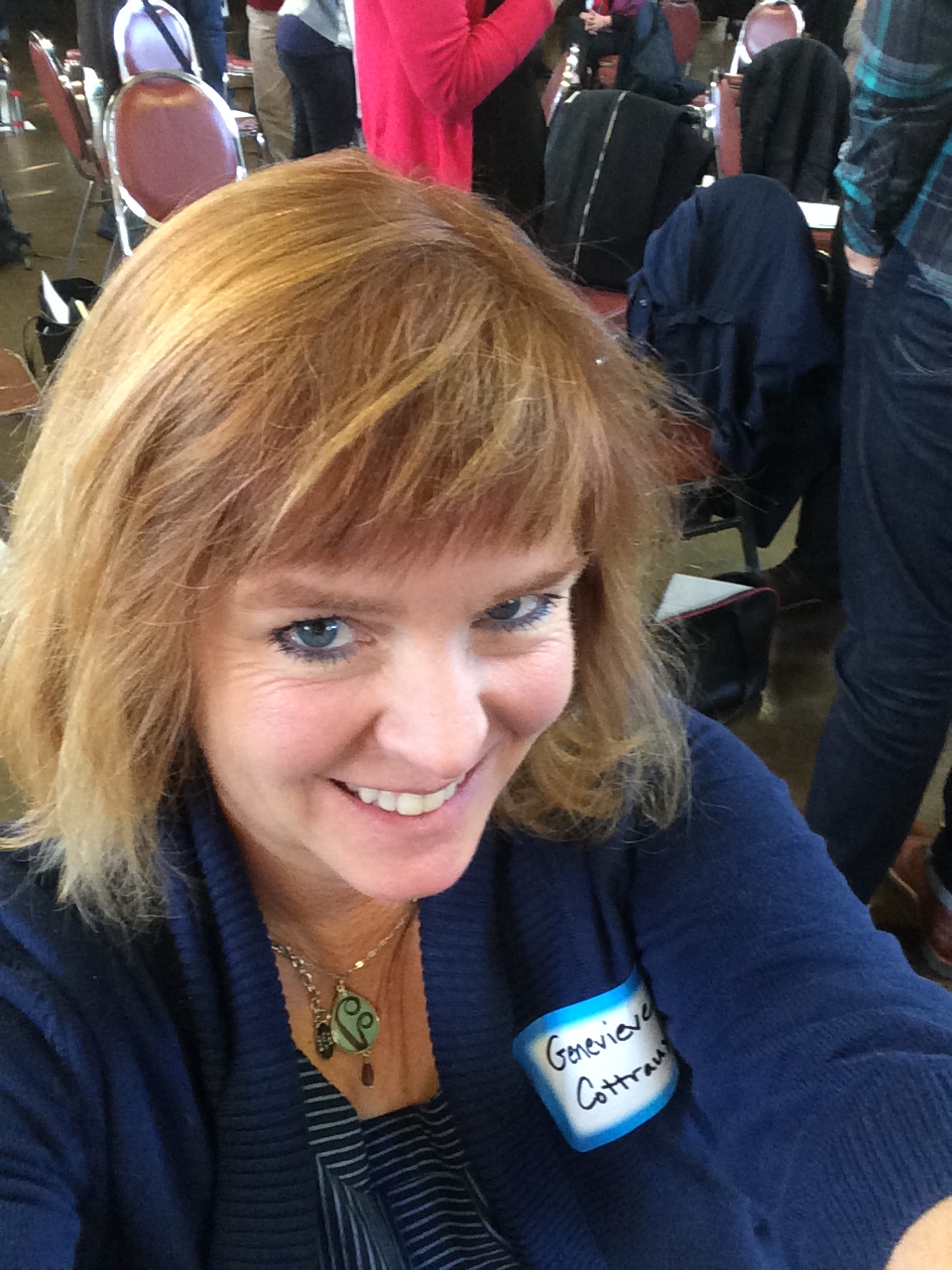
Here’s the thing. I have a lot going on in my life. Sure, we all do. It’s really not an excuse. I imagine all of the things I could get done if there were more hours in the day!

But, would I get them done? Or what I just start more things that I never finish while posting lots of pictures of Pugcat on his Instagram? (If you don’t follow Pugcat, you really should. He’s a very clever cat.) Pugcat may be the main reason I haven’t written many blog posts recently.

Overseeing Pugcat’s social media is just one of the many ways I find to avoid doing the things I probably should be doing.
There wasn’t the whole distracting world of social media when I was in graduate school the first time in the late 1980s, so back then my main technique for procrastination was house cleaning. That’s a pretty good one to have if you have any neat freak tendencies. I vacuumed the hell out of my house during that period. I liked to think it was a good time for reflecting on what I would start writing as soon as I was done vacuuming.
I never solved a murder mystery while vacuuming, but I did eventually write my thesis and get my master’s degree. And my house has never been so clean!

Procrastination is fine to a point, unless it becomes an endless cycle that leads to never ever actually accomplishing anything. Which is the loop I seem to be stuck in at the moment. I’ve started countless new art projects, am simultaneously reading about 6 books, am about to bake vegan Irish soda bread for Saint Patrick’s Day, and just signed up for French language lessons at the local adult school, I have not managed to fold the 2 loads of laundry in progress, clear the pile of papers of off my desk, or get the long-suffering dog out for a walk.

And then there’s the not so small matter of my doctoral dissertation, which I am now a semester behind on finishing. You’d think it would be less painful to sit down and work on it than to find ways not to do it, but you’d be wrong.
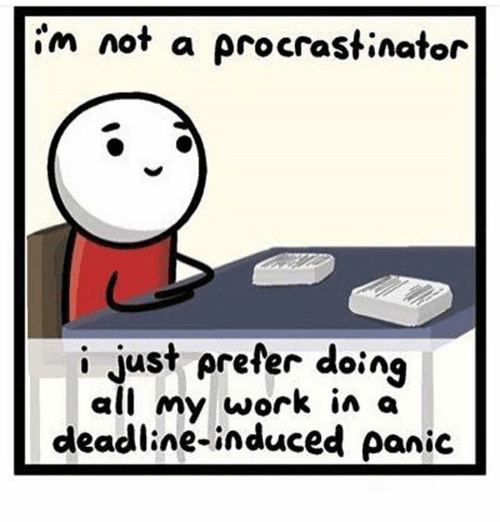 I Googled the word procrastinate and found lots of articles on the different types of procrastination and procrastinators. Some keep it to 2 types, but there are also articles that go with up to 8 types, like this from braintrainingtools.org.
I Googled the word procrastinate and found lots of articles on the different types of procrastination and procrastinators. Some keep it to 2 types, but there are also articles that go with up to 8 types, like this from braintrainingtools.org.

There are countless books on procrastination, procrastination types, how to beat the urge toward procrastination, etc. I haven’t gotten around to reading any of them yet. (See what I did there, huh?)

I’m fond of Mary Toolan’s idea that it is creative types who are prone to procrastination.

Speaking of creative types, one of my favorite methods of procrastination is procraftination.

Until I start procrastinating on finishing any of the craft projects I started while procraftinating…Here are just a few of my unfinished craft projects.
And that doesn’t include my fabric stash, my yarn stash and knitting basket, my coloring books, etc. Maybe I should open a crafting studio! But that would take work, which I have shown I am adept at avoiding.

I even manage to multi-task procrastinate. If I am in the middle of a really good book (of the 6 that I am juggling), I can manage to justify to myself putting off many things for the sake of finishing the book, or just :getting to good stopping place”. Hey, reading is important and good for psychological hhealth.

If I were just a housecat, then it would be completely normal for me to sleep, play, enjoy sun puddles, and generally be non-productive while making those around me happy.

In the meantime, I dream of becoming one of those people who finishes things, getting that PhD just in time to retire. Then I can read and craft and nap all I want! Oh wait, I do that anyway.
That gives me an idea. I can start drawing out plans for my ideal retirement house. It would include a craft room, a reading room, a foster cat room…I’d better make some coffee and get started on that! The laundry and the dissertation can wait.

With apologies to my dissertation committee, especially my committe chair, the amazing Kathia Laszlo, for my easily distracted brain. I will get it done, I promise! It’s just that I am the creative type. I can’t help it!
As always, peace and hugs.

